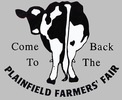General Rules
EXHIBITORS MUST BE RESIDENTS OF THE STATE OF PENNSYLVANIA EXCEPT FOR PULLERS AND DEMO. ALL LIVESTOCK EXHIBITORS MUST BE RESIDENTS OF NORTHAMPTON, MONROE, CARBON, BUCKS AND LEHIGH COUNTIES. ALL EXHIBITORS MUST HAVE AN ENTRY NUMBER.
